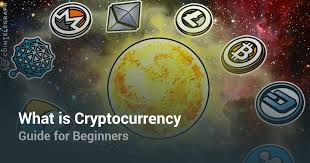INTRODUCTION TO CRYPTOCURRENCY PART 1

What is a 'Digital currency'
A digital currency is an advanced or virtual money that utilizes cryptography for security. A digital money is hard to fake due to this security include. A characterizing highlight of a cryptographic money, and ostensibly its most charming appeal, is its natural nature; it isn't issued by any focal expert, rendering it hypothetically insusceptible to government impedance or control.

Separating 'Digital currency'
The unknown idea of digital currency exchanges makes them appropriate for a large group of detestable exercises, for example, illegal tax avoidance and tax avoidance.
The primary digital currency to catch people in general creative ability was Bitcoin, which was propelled in 2009 by an individual or gathering known under the nom de plume Nakamoto. As of September 2015, there were more than 14.6 million bitcoins available for use with an aggregate market estimation of $3.4 billion. Bitcoin's prosperity has brought forth various contending cryptographic forms of money, for example, Litecoin, Namecoin and PPCoin.

Digital money Benefits and Drawbacks
Digital forms of money make it simpler to exchange supports between two gatherings in an exchange; these exchanges are encouraged using open and private keys for security purposes. These reserve exchanges are finished with negligible handling expenses, enabling clients to maintain a strategic distance from the lofty charges charged by most banks and money related organizations for wire exchanges.
Fundamental to the virtuoso of Bitcoin is the piece fasten it uses to store an online record of the considerable number of exchanges that have ever been directed utilizing bitcoins, giving an information structure to this record is presented to a constrained danger from programmers and can be replicated over all PCs running Bitcoin programming. Numerous specialists see this piece chain as having imperative uses in advances, for example, web based voting and crowdfunding, and major money related organizations, for example, JP Morgan Chase see potential in cryptographic forms of money to bring down exchange costs by making installment preparing more proficient.
Be that as it may, in light of the fact that cryptographic forms of money are virtual and don't have a focal storehouse, a computerized digital currency adjust can be wiped out by a PC crash if a reinforcement duplicate of the possessions does not exist. Since costs depend on free market activity, the rate at which a cryptographic money can be traded for another cash can change broadly.
Cryptographic forms of money are not invulnerable to the danger of hacking. In Bitcoin's short history, the organization has been liable to more than 40 burglaries, including a couple of that surpassed $1 million in esteem. In any case, numerous spectators take a gander at digital forms of money as expectation that a cash can exist that jelly esteem, encourages trade, is more transportable than hard metals, and is outside the impact of national banks and governments.
I really love this post. @byykke keep it up.
Hey @byykke, the markets are pretty crazy right now. Crypto is back to a weird space but I know long term it's still what we're all hoping it will be! Cheers
Yea. We keep our fingers crossed hoping for the best.